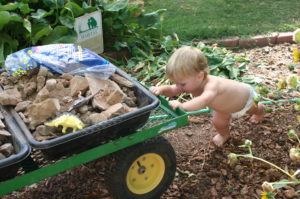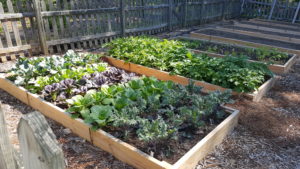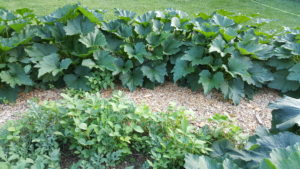There Are Better Options Than Using Tires in the Garden
go.ncsu.edu/readext?1023675
en Español / em Português
El inglés es el idioma de control de esta página. En la medida en que haya algún conflicto entre la traducción al inglés y la traducción, el inglés prevalece.
Al hacer clic en el enlace de traducción se activa un servicio de traducción gratuito para convertir la página al español. Al igual que con cualquier traducción por Internet, la conversión no es sensible al contexto y puede que no traduzca el texto en su significado original. NC State Extension no garantiza la exactitud del texto traducido. Por favor, tenga en cuenta que algunas aplicaciones y/o servicios pueden no funcionar como se espera cuando se traducen.
Português
Inglês é o idioma de controle desta página. Na medida que haja algum conflito entre o texto original em Inglês e a tradução, o Inglês prevalece.
Ao clicar no link de tradução, um serviço gratuito de tradução será ativado para converter a página para o Português. Como em qualquer tradução pela internet, a conversão não é sensivel ao contexto e pode não ocorrer a tradução para o significado orginal. O serviço de Extensão da Carolina do Norte (NC State Extension) não garante a exatidão do texto traduzido. Por favor, observe que algumas funções ou serviços podem não funcionar como esperado após a tradução.
English
English is the controlling language of this page. To the extent there is any conflict between the English text and the translation, English controls.
Clicking on the translation link activates a free translation service to convert the page to Spanish. As with any Internet translation, the conversion is not context-sensitive and may not translate the text to its original meaning. NC State Extension does not guarantee the accuracy of the translated text. Please note that some applications and/or services may not function as expected when translated.
Collapse ▲Disposing of old tires is an environmental and economic challenge that has led to a variety of creative strategies for repurposing the treads into new useful objects including containers for children’s gardens.
While this does keep tires out of landfills, and it can be an inexpensive way to create a raised bed, there are some potential risks.
Tires contain aluminum, cadmium, chromium, copper, iron, magnesium, manganese, molybdenum, selenium, and sulfur, as well as a high level of zinc. They also contain plasticizers and accelerators used during the vulcanizing process. In addition, rubber can also absorb heavy metals like lead.
As tires breakdown, these toxic substances leach out, contaminating the soil, the plants, and leaching through storm water into creeks and lakes. Over time, this could pose health risk for gardeners or those consuming the produce. Contaminants can be breathed in; they can be absorbed through the skin; or consumed.

image by Lucy Bradley All Rights Reserved
Young Children are at Higher Risk
- They are closer to the ground,
- They are more likely to eat soil (dirty finger in the mouth, a vegetable not washed, a mud pie)
- They are more likely to have exposed skin (diaper only, shorts, tank top, barefoot), and
- Because of their small size, they are impacted by lower doses.

Forsyth County Demonstration Garden image by Lucy Bradley CC0
Alternatives for Raised Bed Construction
- ACQ pressure-treated wood, woods with natural rot-resistance, or other non-treated woods.
- Bricks, stone, concrete, or other recycled materials may be safe, if they have not been exposed to lead paint, asbestos, or other chemicals.
-

image by Lucy Bradley CC0
Simply mound the soil, with no structure for the border. This is less expensive, brings in no potential contaminants, is more flexible, and can be beautiful.
There is no need to use tires in the garden There are other economical, environmentally sustainable, options that have less potential for health risks.
More Information on Minimizing Risks of Soil Contaminants in Urban Gardens
- John W. Vick and Joshua Poe. 2001. Safe Container Gardening. Center for Environmental Policy and Management Environmental Finance Center: Serving EPA Region 4 University of Louisville Department of Sociology
- Linda Chalker-Scott. 2015. The myth of rubberized landscape. Puyallup Research and Extension Center, Washington State University.
- Carl Crozier, Matthew Polizzotto, and Lucy Bradley. 2015. NC State Extension Minimizing Risks of Soil Contaminants in Urban Gardens
- Duke Super Fund Research Center: Resources for North Carolina Community Gardens


